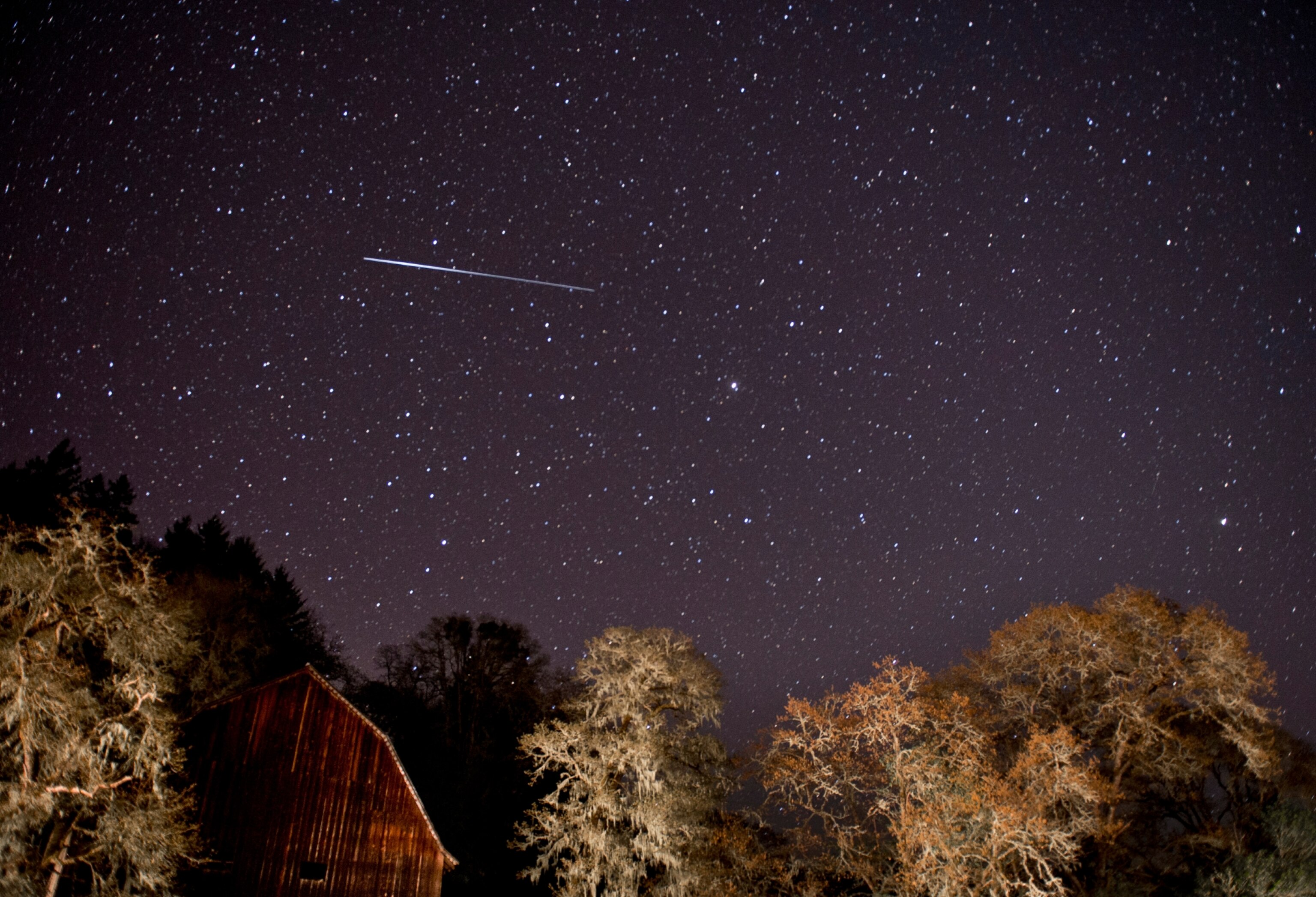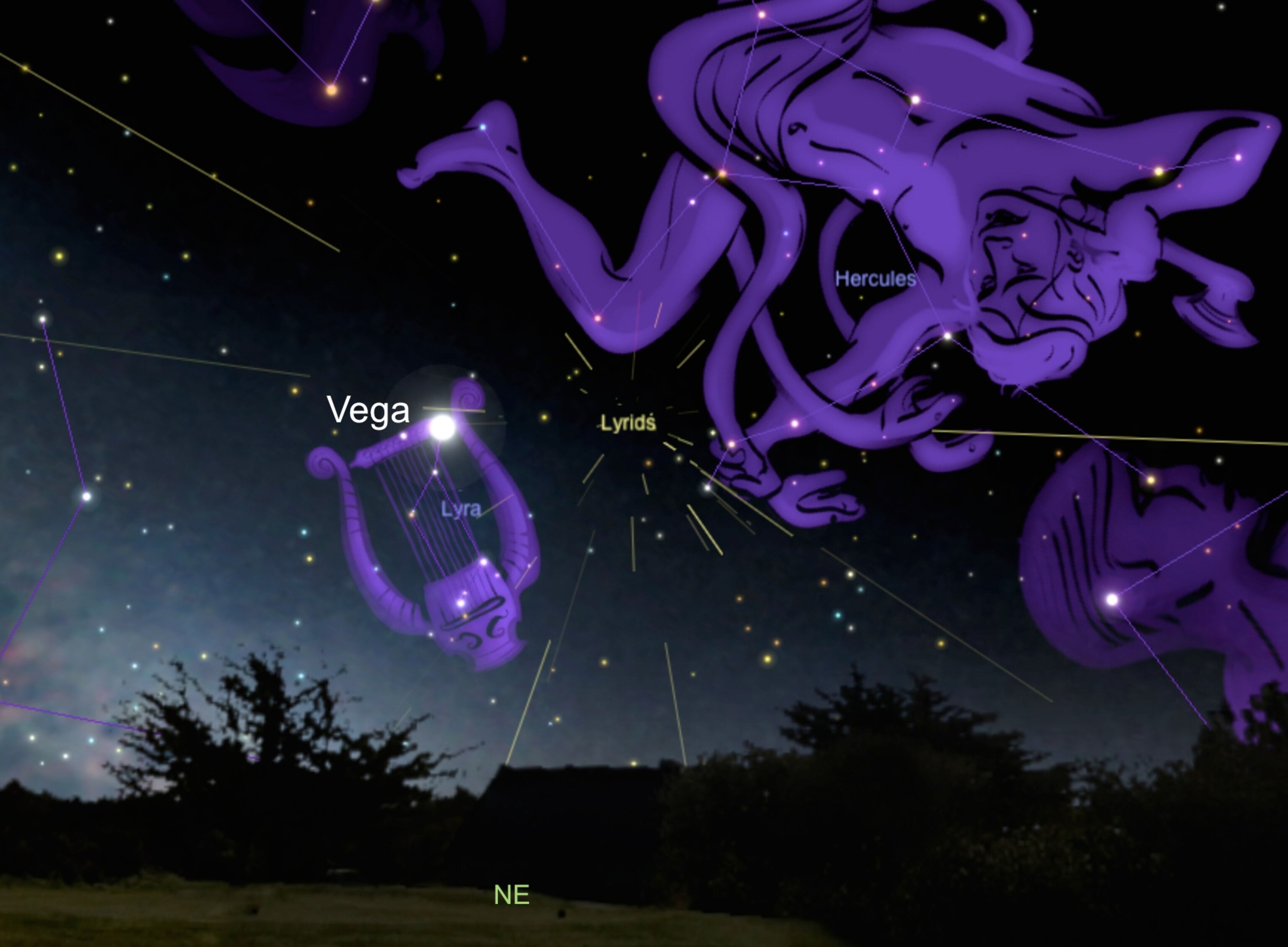
This Week's Must-See Show Is the Lyrid Meteor Shower
Shooting stars will light up the night skies on Wednesday, and if you miss them you can catch a sprinkling for a few nights afterward.
Dark moonless skies this week promise to usher in perfect viewing conditions for the annual Lyrid meteor shower. The shower should peak in the dark hours before dawn on Wednesday, just in time to kick off Earth Day, with a repeat performance late Wednesday night and into the following morning.
Sky-watchers could see as many as 15 to 20 shooting stars per hour zip across the night sky in darker locales. With a chance of occasional bursts of extra activity, this show is definitely worth watching.
Meteors pelt Earth whenever it passes through a particularly dense part of the stream of debris left behind by a comet—like bugs hitting the windshield of a fast-moving car.
In the last century, on at least two occasions the Lyrids kicked in with unexpectedly high rates of up to 100 meteors per hour. Ancient Chinese astronomers once noted that this meteor shower was so prolific that the meteors were “falling like rain.”
As for what this year has in store, there's always an element of surprise. So we'll just have to go outside and look up!
What do Lyrid meteors look like?
Lyrid meteors are mostly the size of a grain of sand, and they burn up as they fall to Earth at speeds of more than 100,000 kilometers an hour.
The Lyrids are known to produce bright, fast-moving meteors, with about 15 percent of them leaving behind persistent, smoky trails that are clearly visible for a few minutes thereafter.
Sky-watchers should also be on the lookout for fireballs, which are brighter than average meteors and can be as large as a golf ball or even a basketball when they hit the atmosphere.

Where in the sky will they appear?
While meteors can appear in any part of the sky, most will be streaming out from the shower's namesake constellation Lyra (the harp). Look for Lyra near the brilliant star Vega, which now shines nearly straight overhead in the predawn hours for stargazers across the Northern Hemisphere. Because the radiant of the shower— the part of the sky where the meteors appear to radiate out from—rises above the northeast horizon in the early evenings, observers should be able to see meteors all night long.
In Southern Hemisphere skies, Lyra will be at or below the horizon, so viewers there will see just a sprinkling of meteors.
The shower will spike in the pre-dawn hours of April 22, but observers can catch Lyrid stragglers streaking across the night sky right through April 25.
As the waxing crescent moon sets in the early evenings this week, starting around midnight, the darker skies will allow a lot more of the Lyrid meteors to be visible.
Where do the Lyrids originate?
The shower itself is produced by debris left over from the last time the comet Thatcher approached the sun, in 1861. The comet's 416-year-long orbit is skewed nearly perpendicular to the plane of the solar system, which helps keep the streams of material following behind the comet from being scattered by the gravitational pull of the planets.
Astronomers believe this may be why the Lyrids have been a reliable show for skywatchers for centuries.
How should I prepare for the sky show?
If skies are cloudy where you are, you can still catch the celestial show online here with a live webcast bythe astronomy outreach venture Slooh.com starting at 5:00 p.m. PDT/8:00 p.m. EDT/00:00 UTC.
If you have clear skies, going to the dark countryside away from light pollution will increase your chances of seeing even the faintest meteors.
But even if you are stuck in bright suburbia, you may be able to catch at least half a dozen shooting stars per hour, with possibly a fireball or two mixed in over the course of the night.
Because the meteors race across much of the overhead sky, there is no need for binoculars or telescopes. In terms of equipment, reclining lawn chairs, warm blankets and a hot chocolate are really all that you need to enjoy this spring shower.